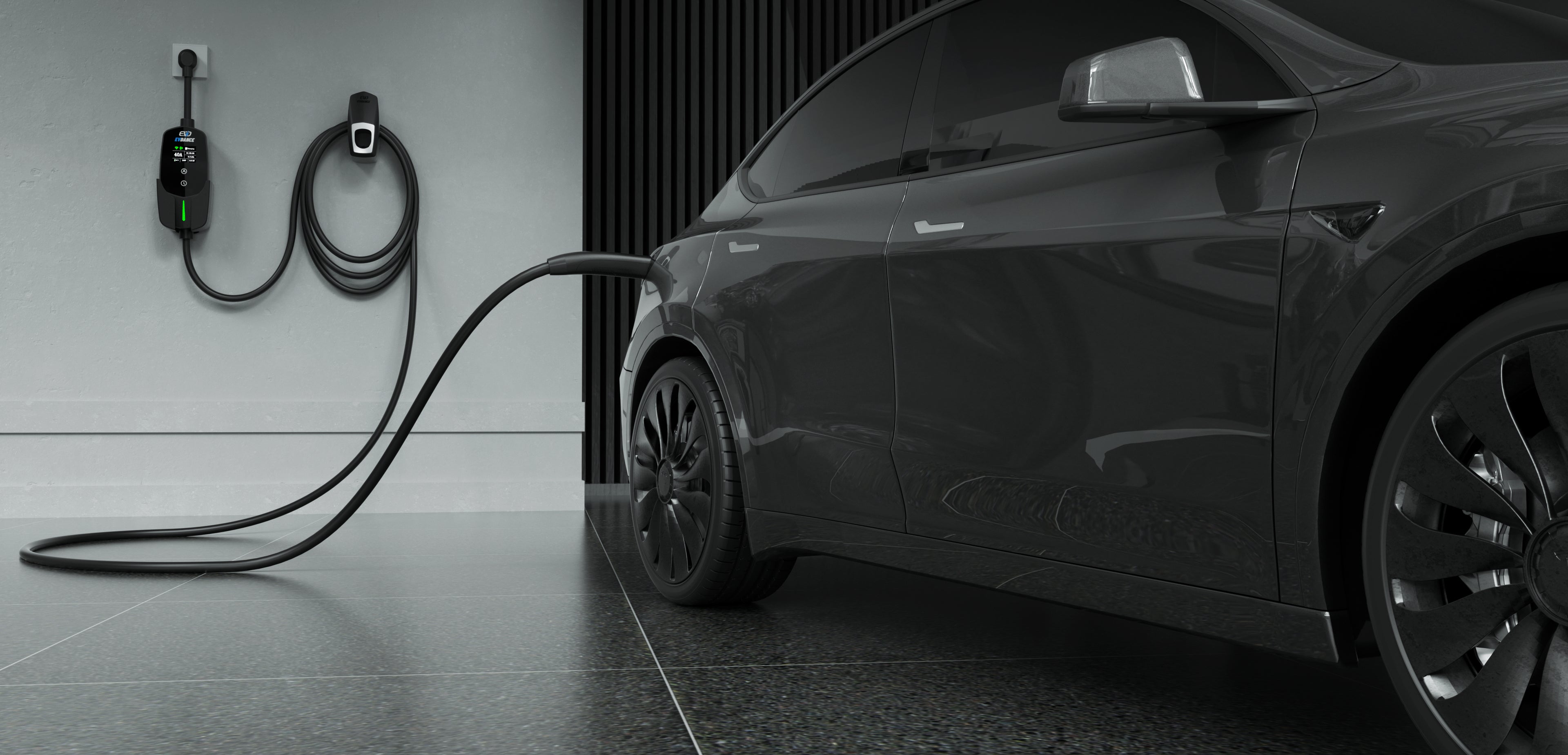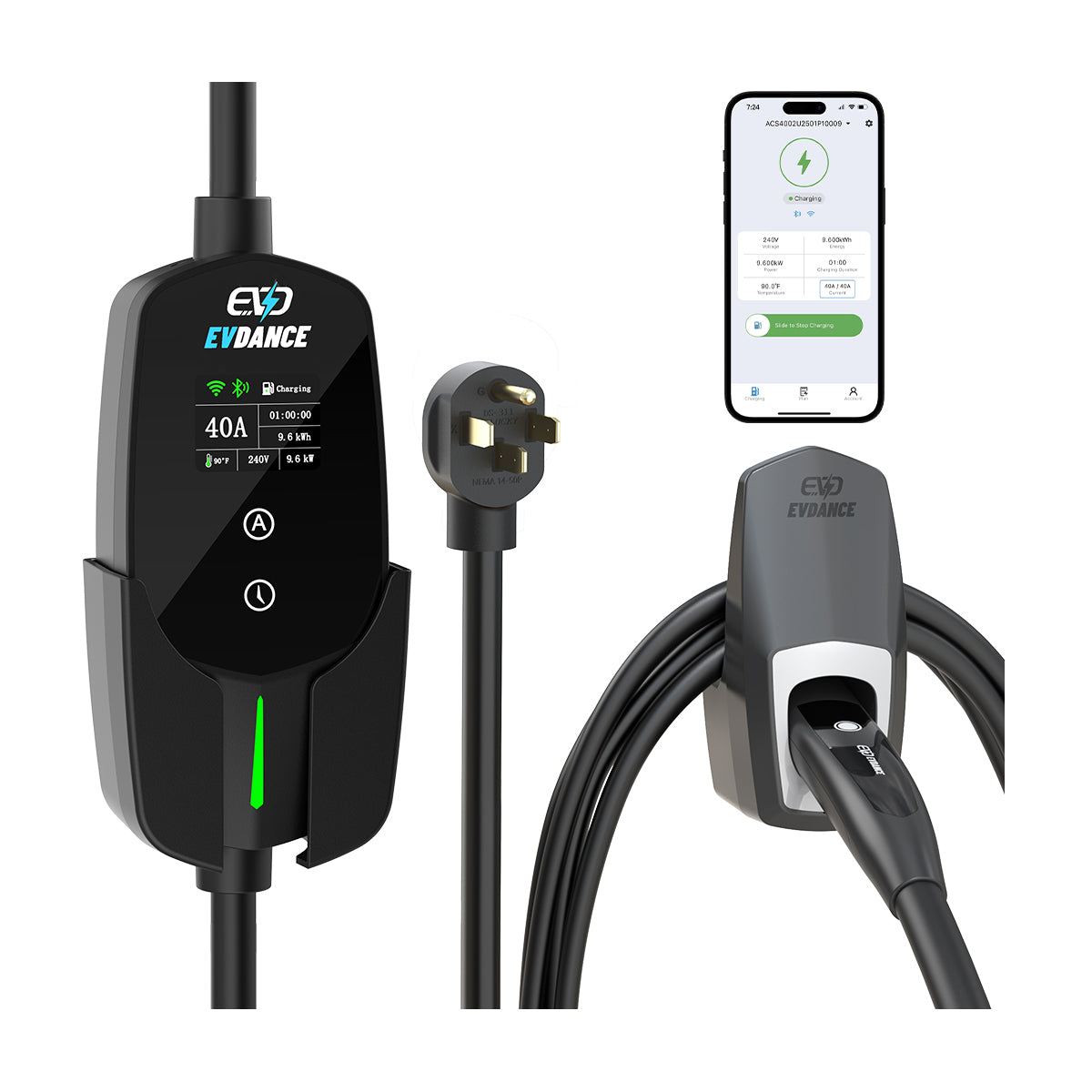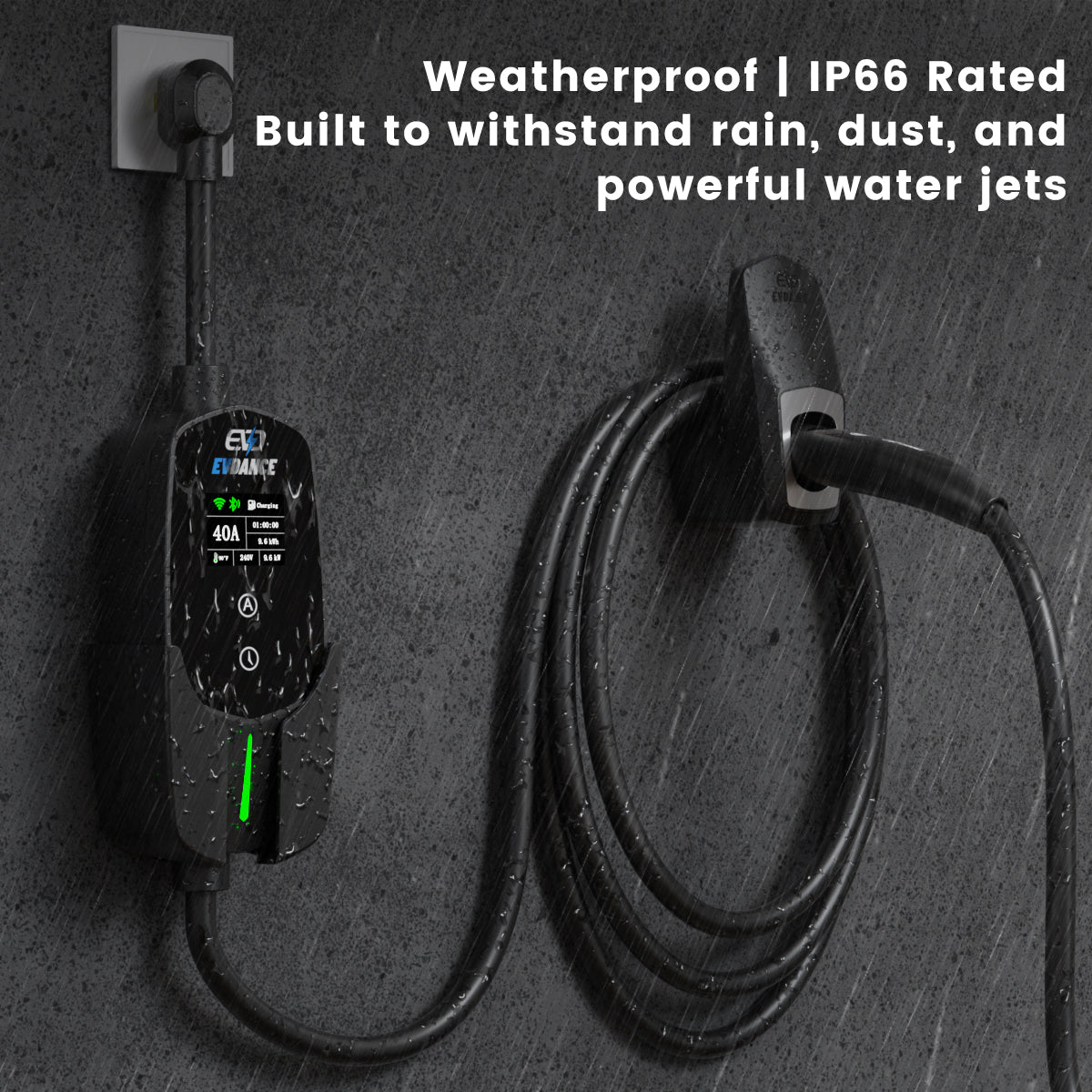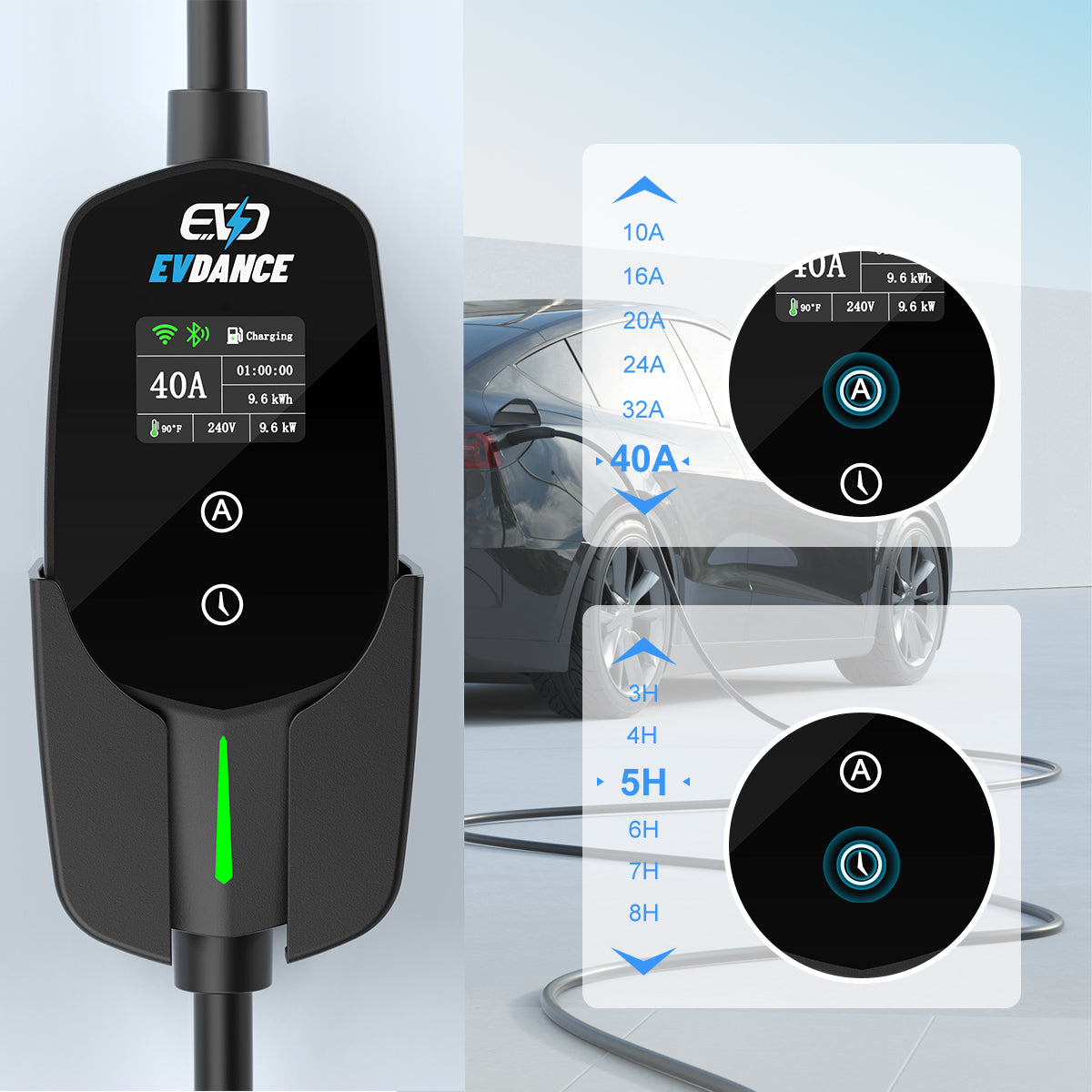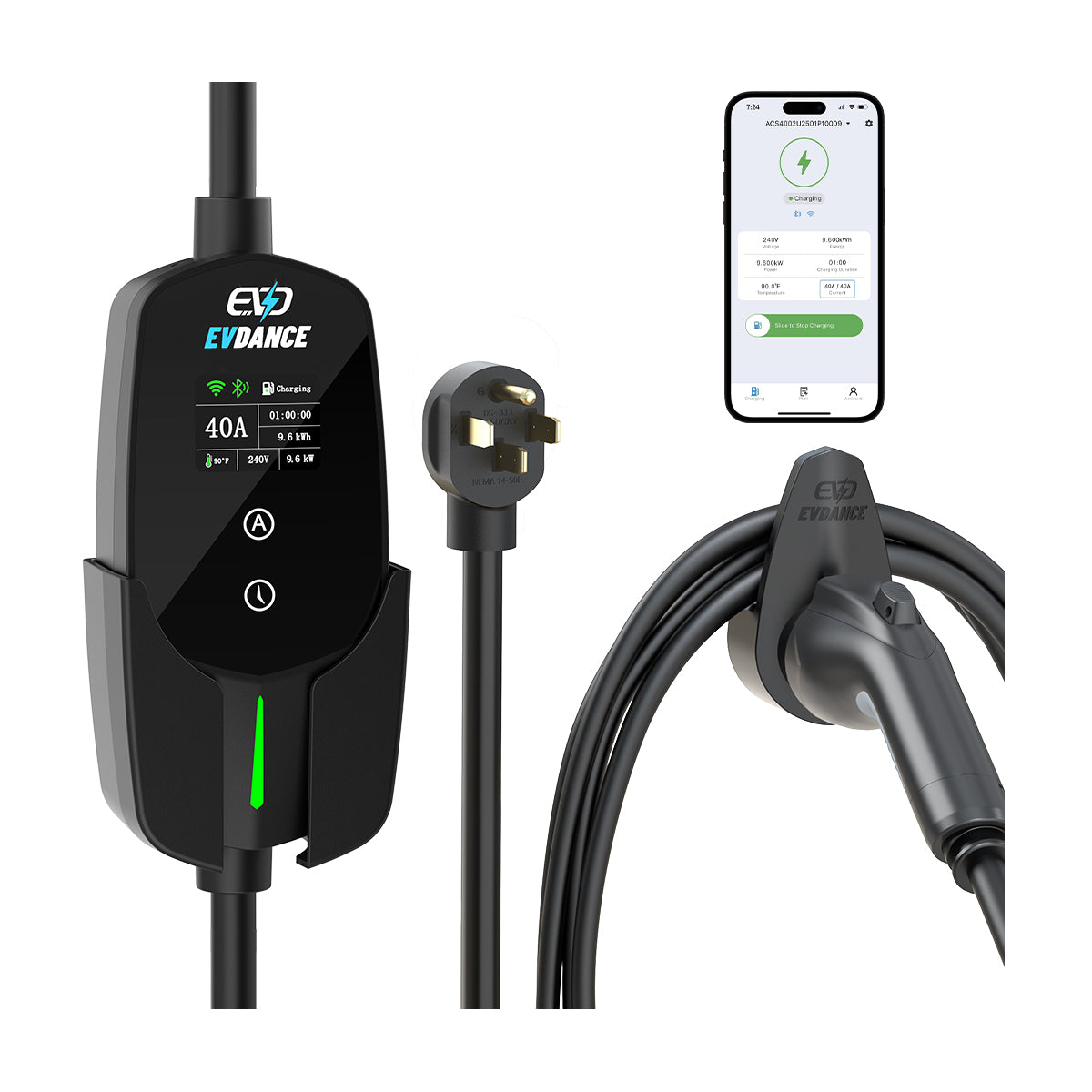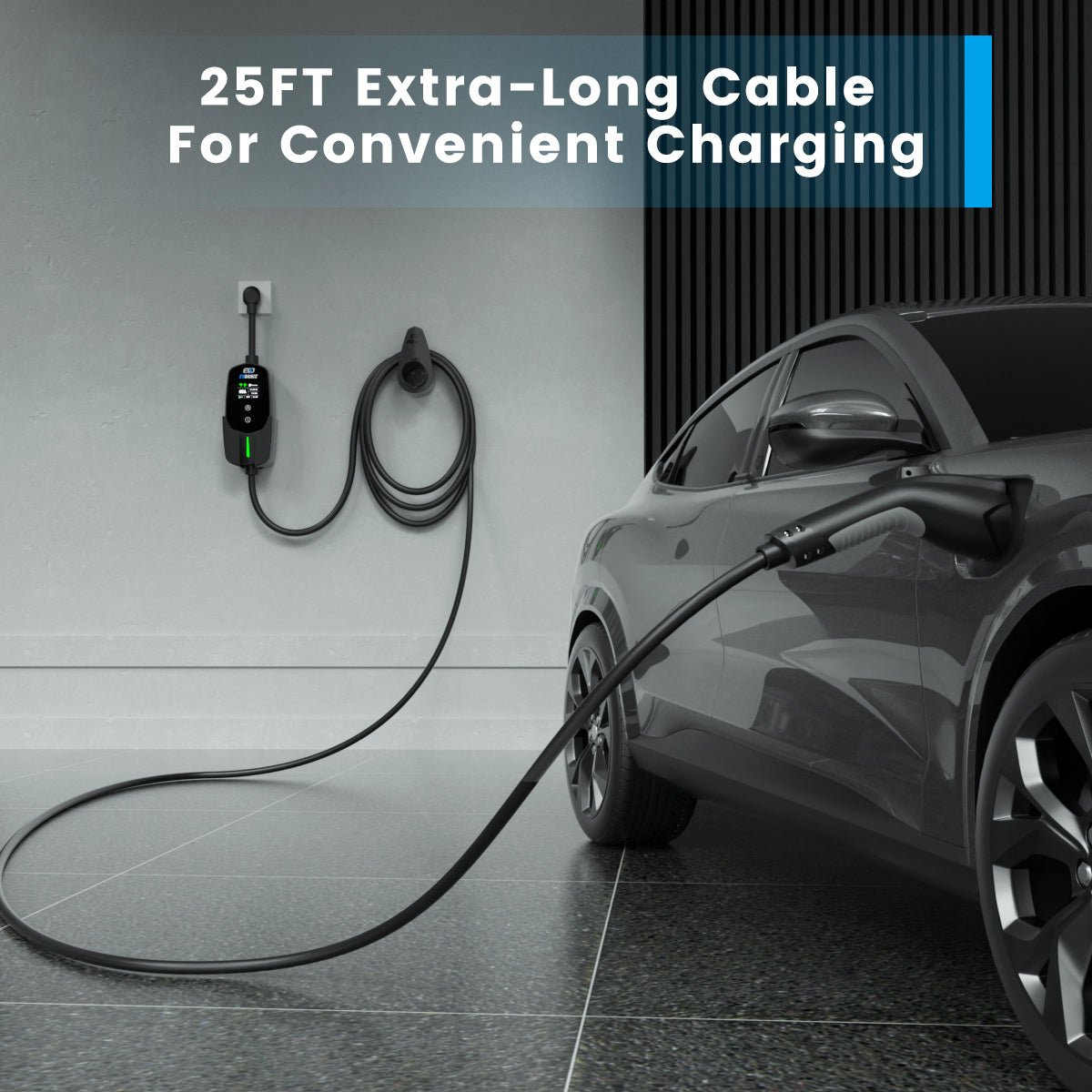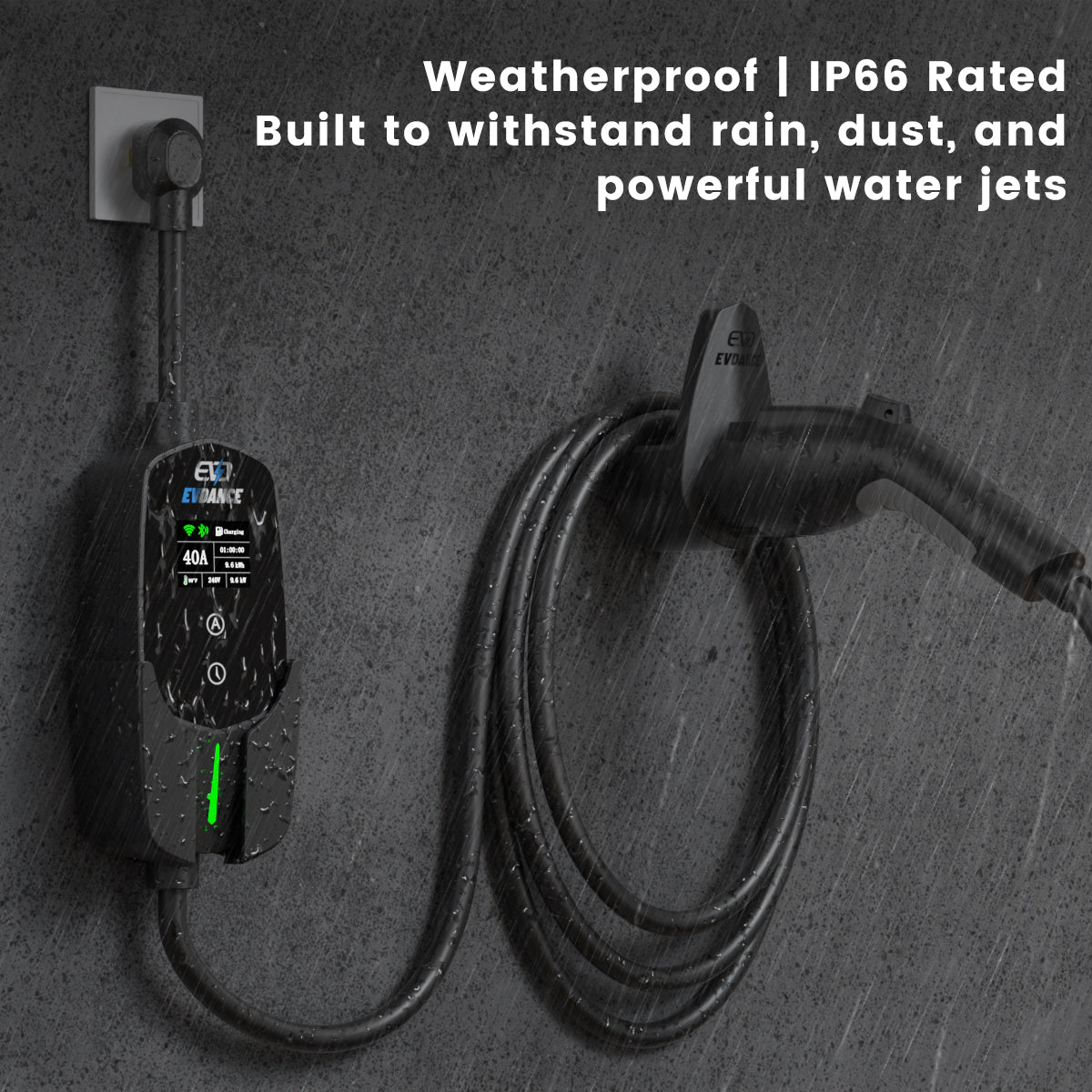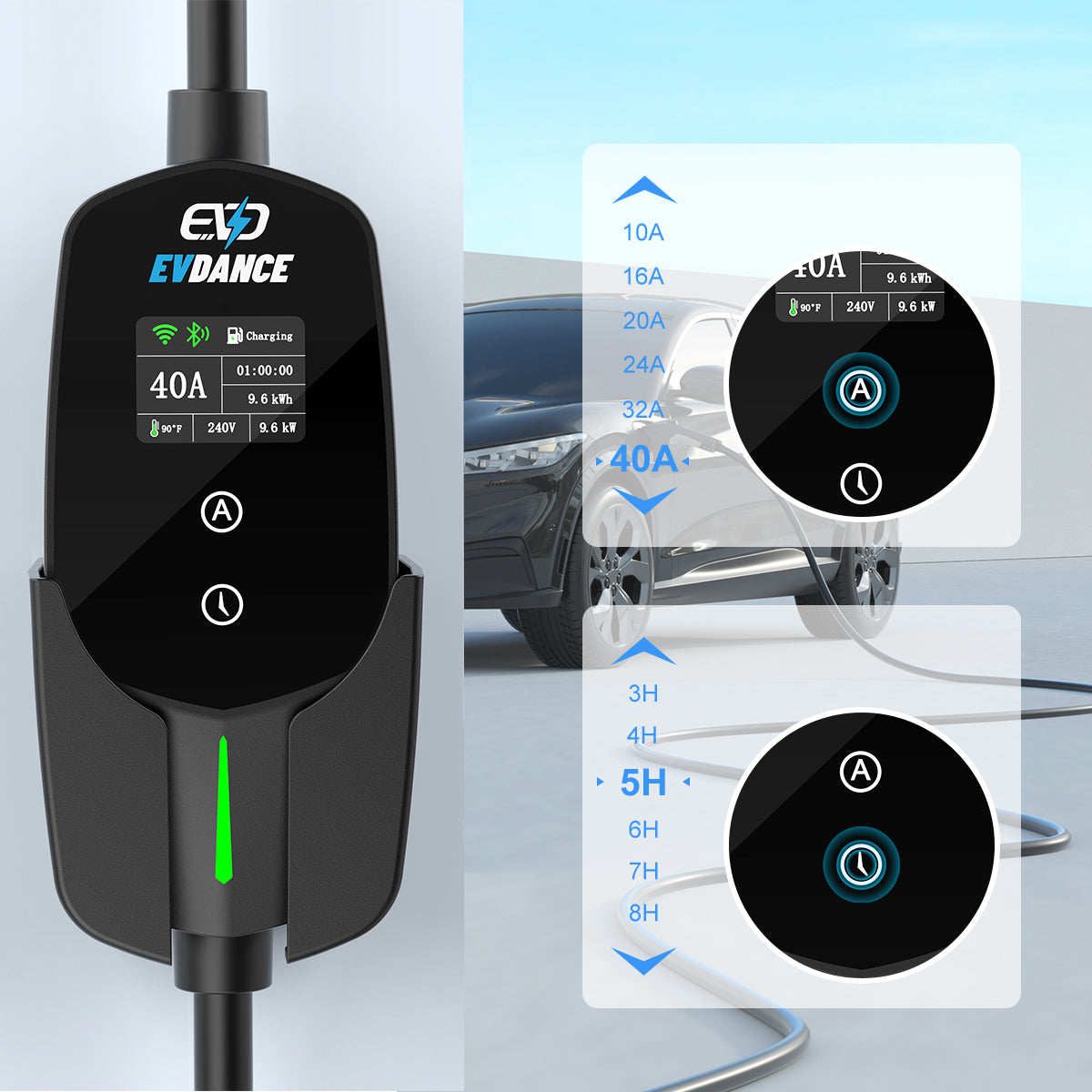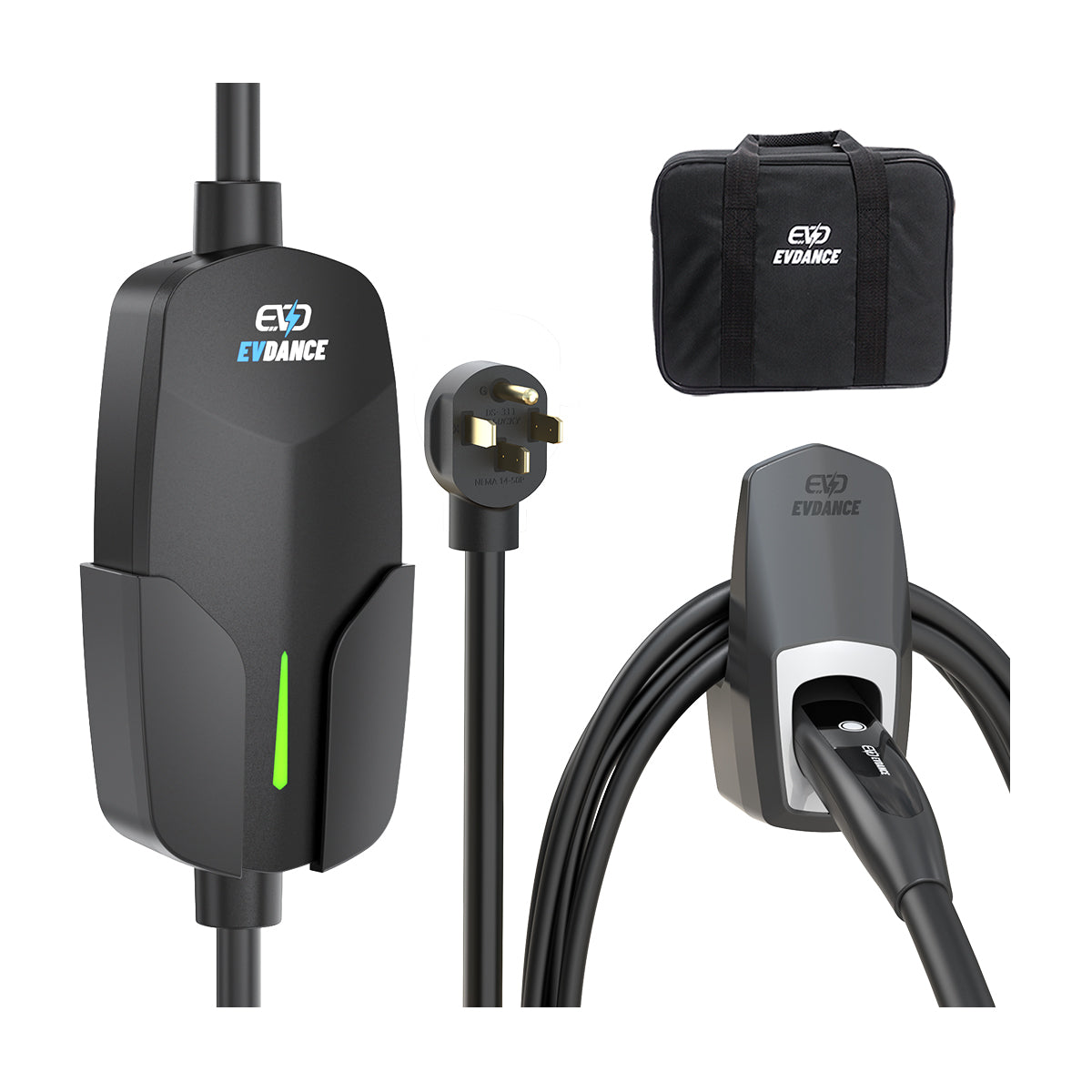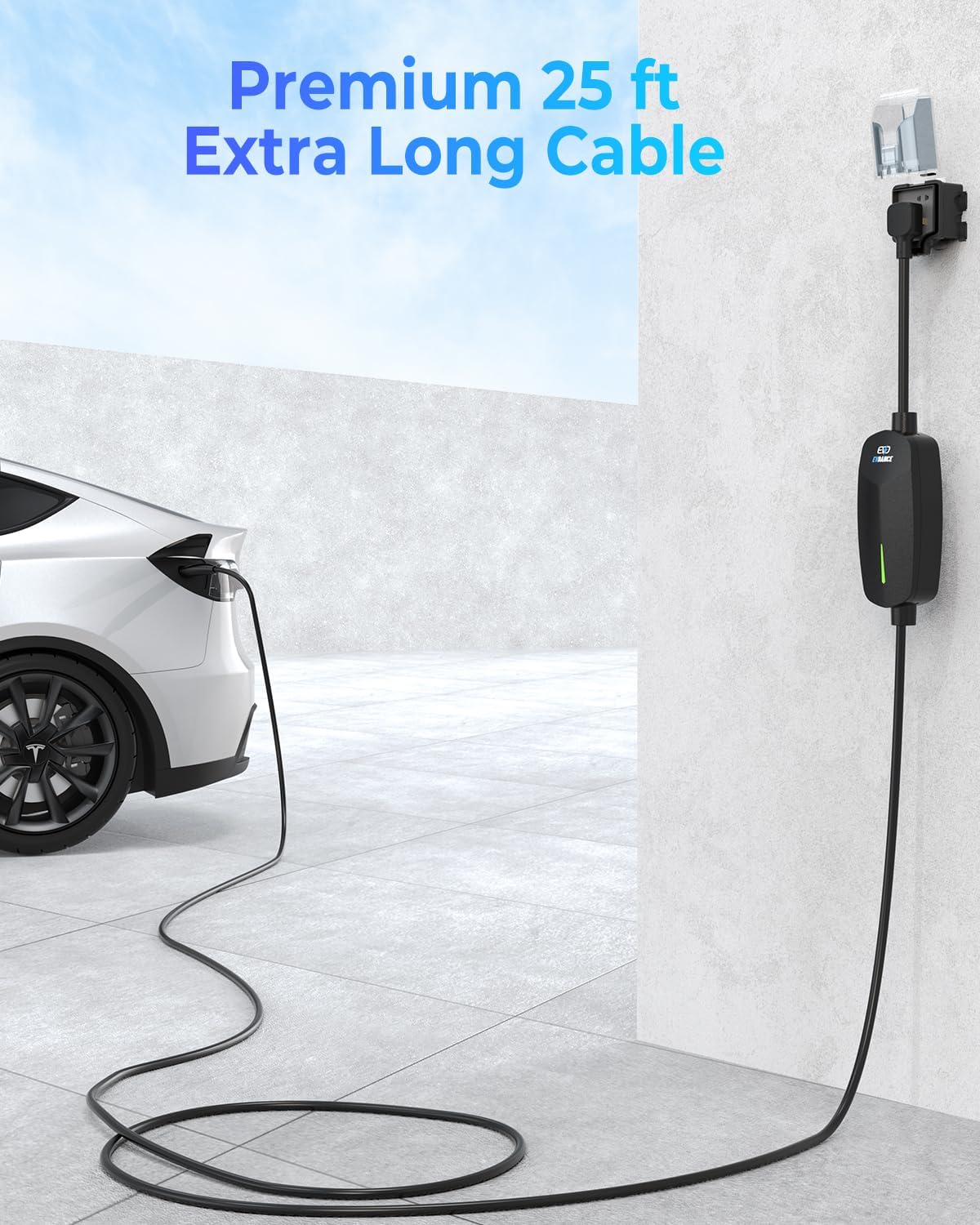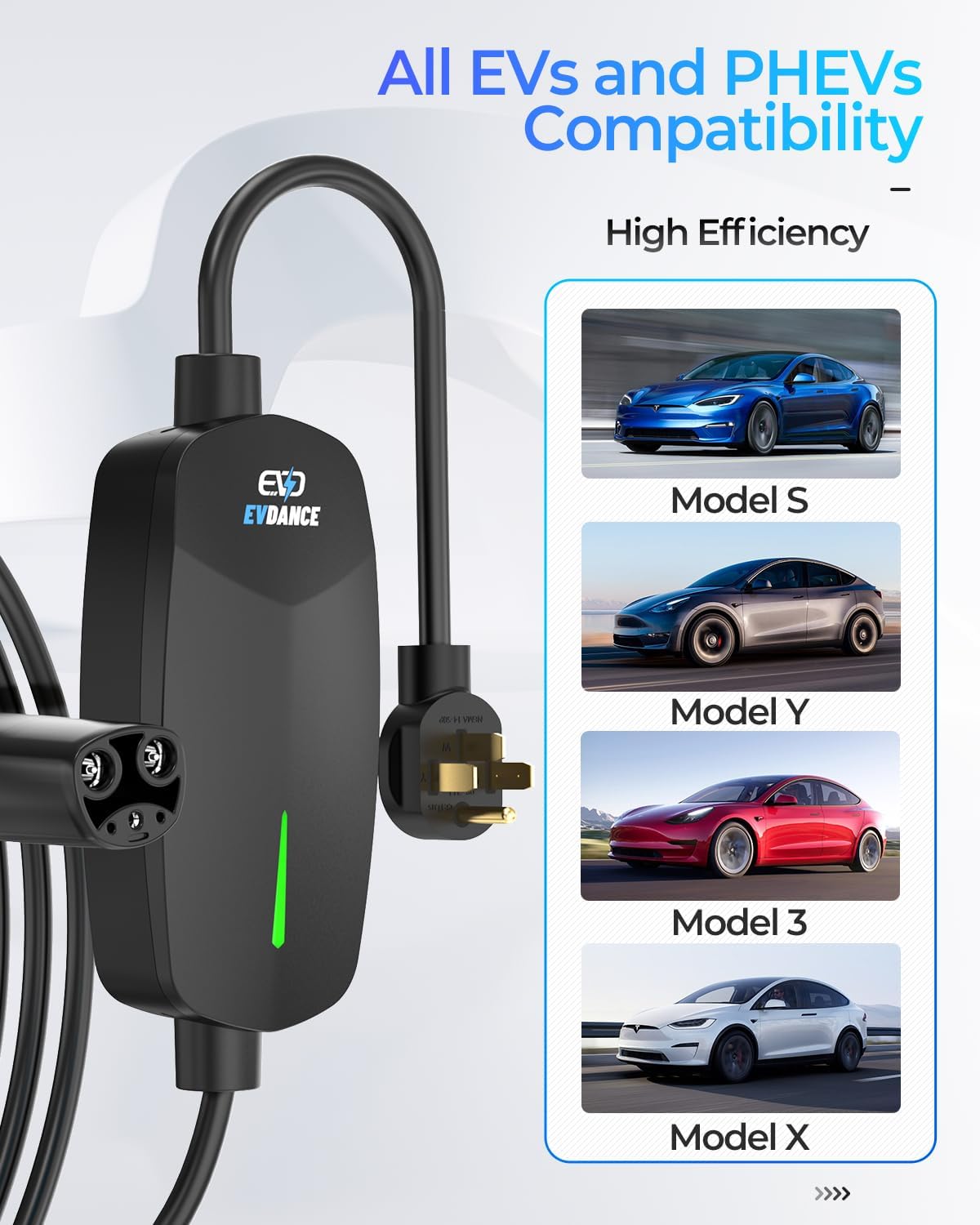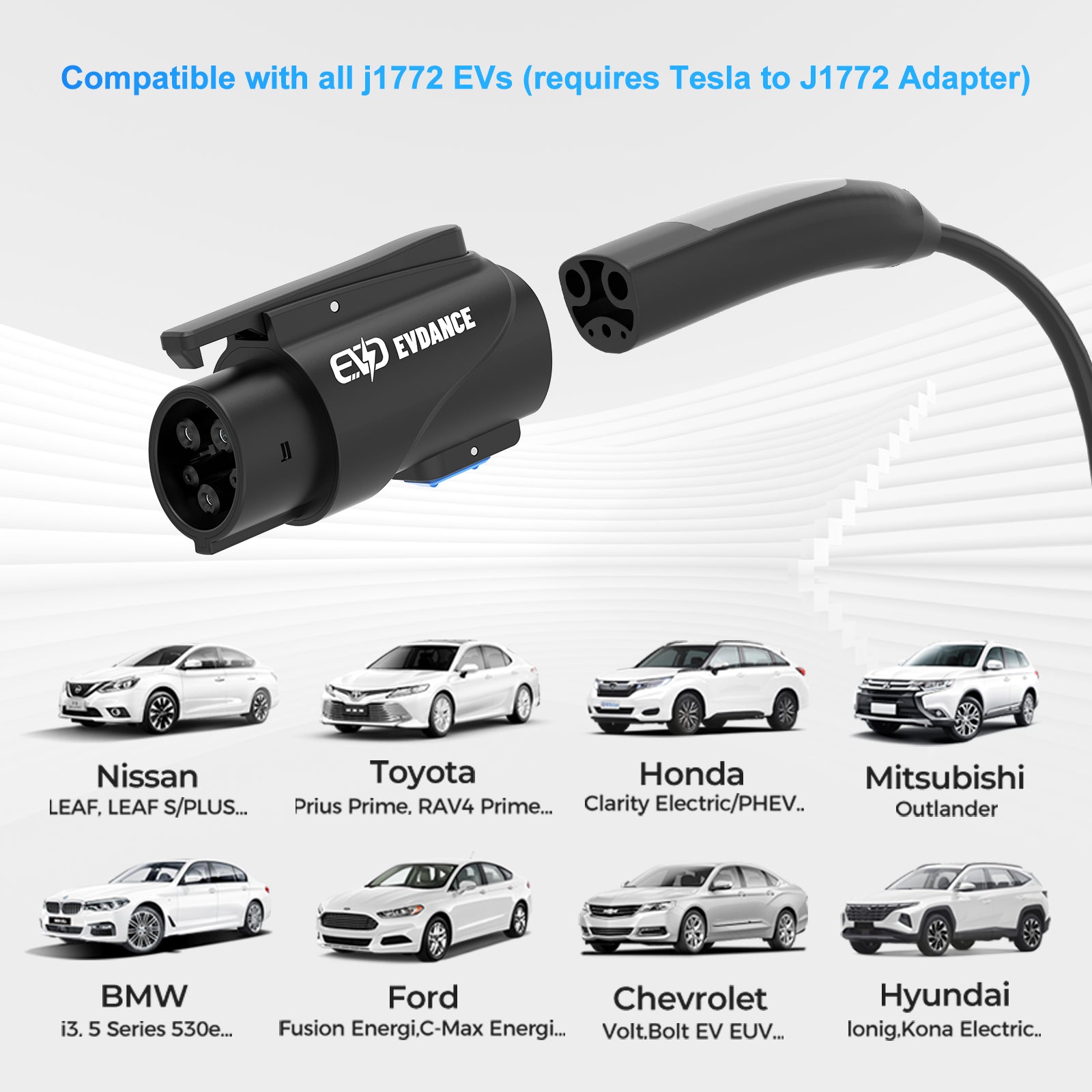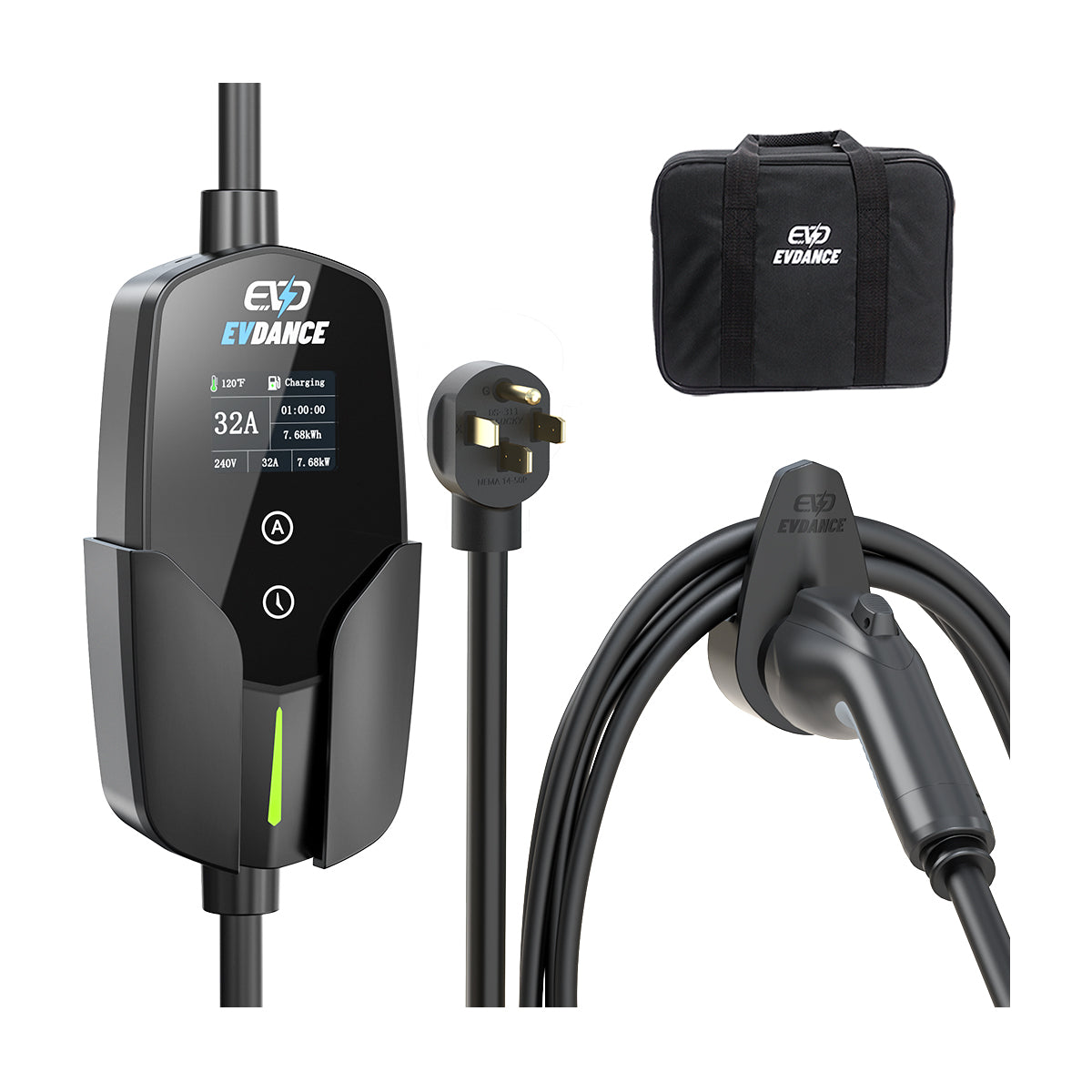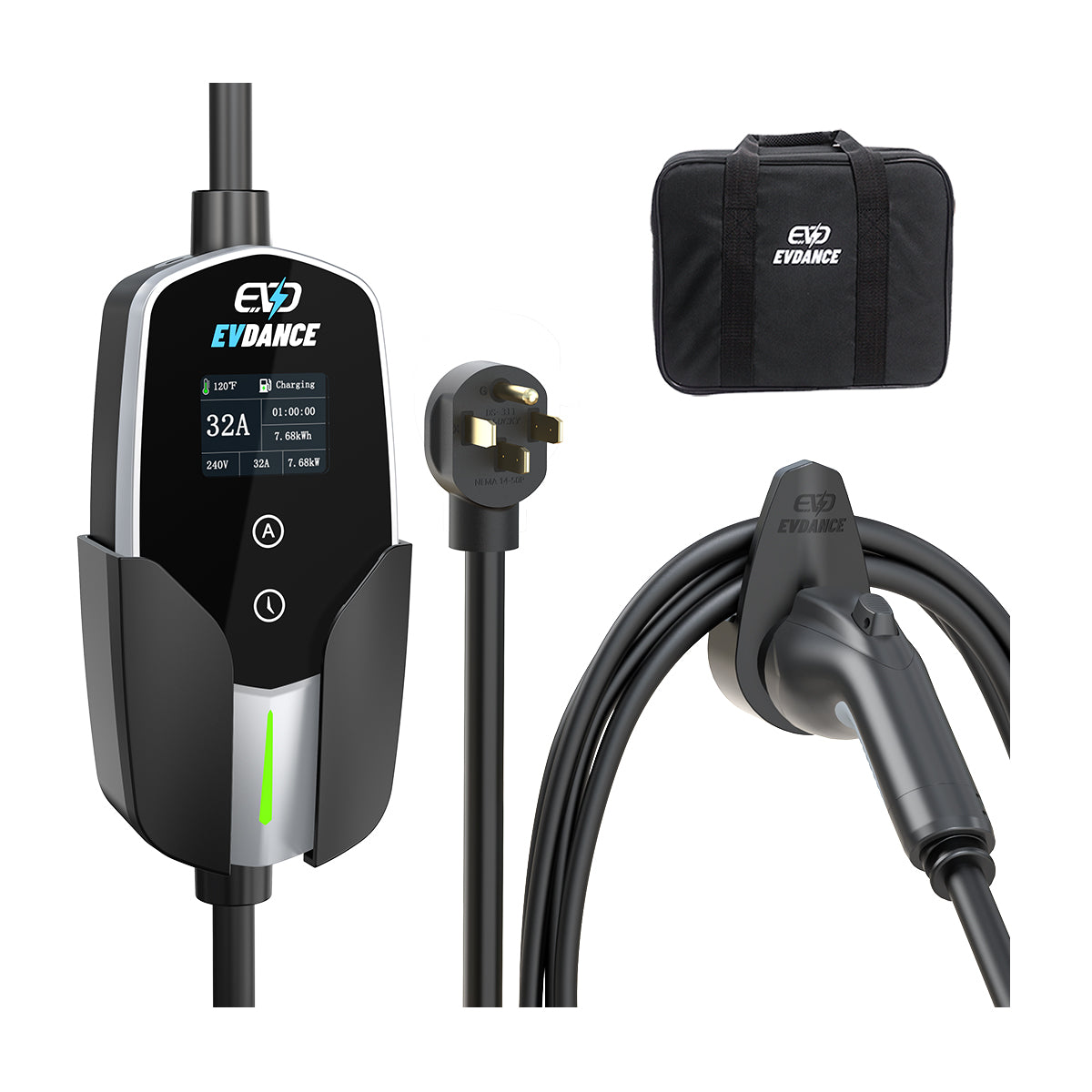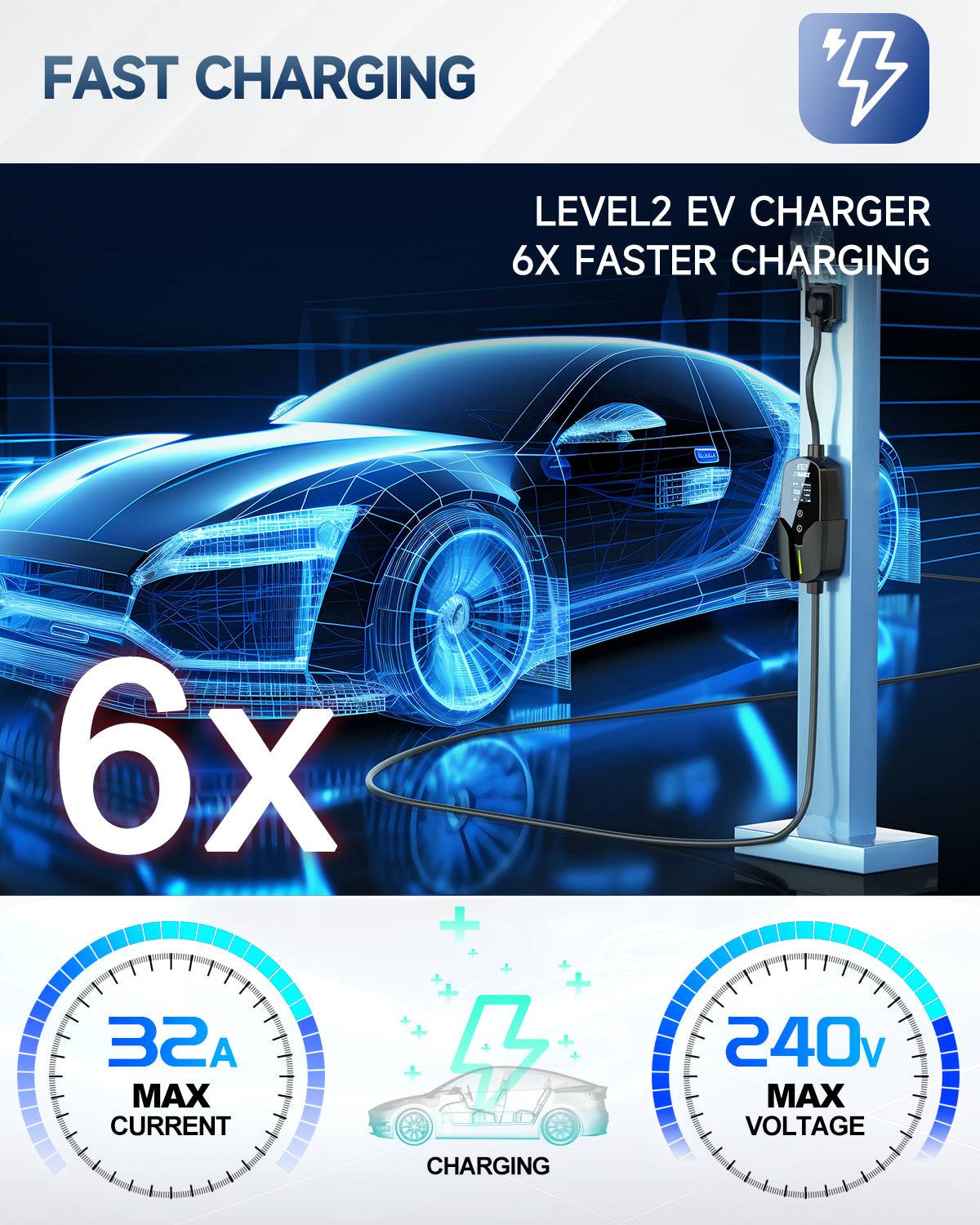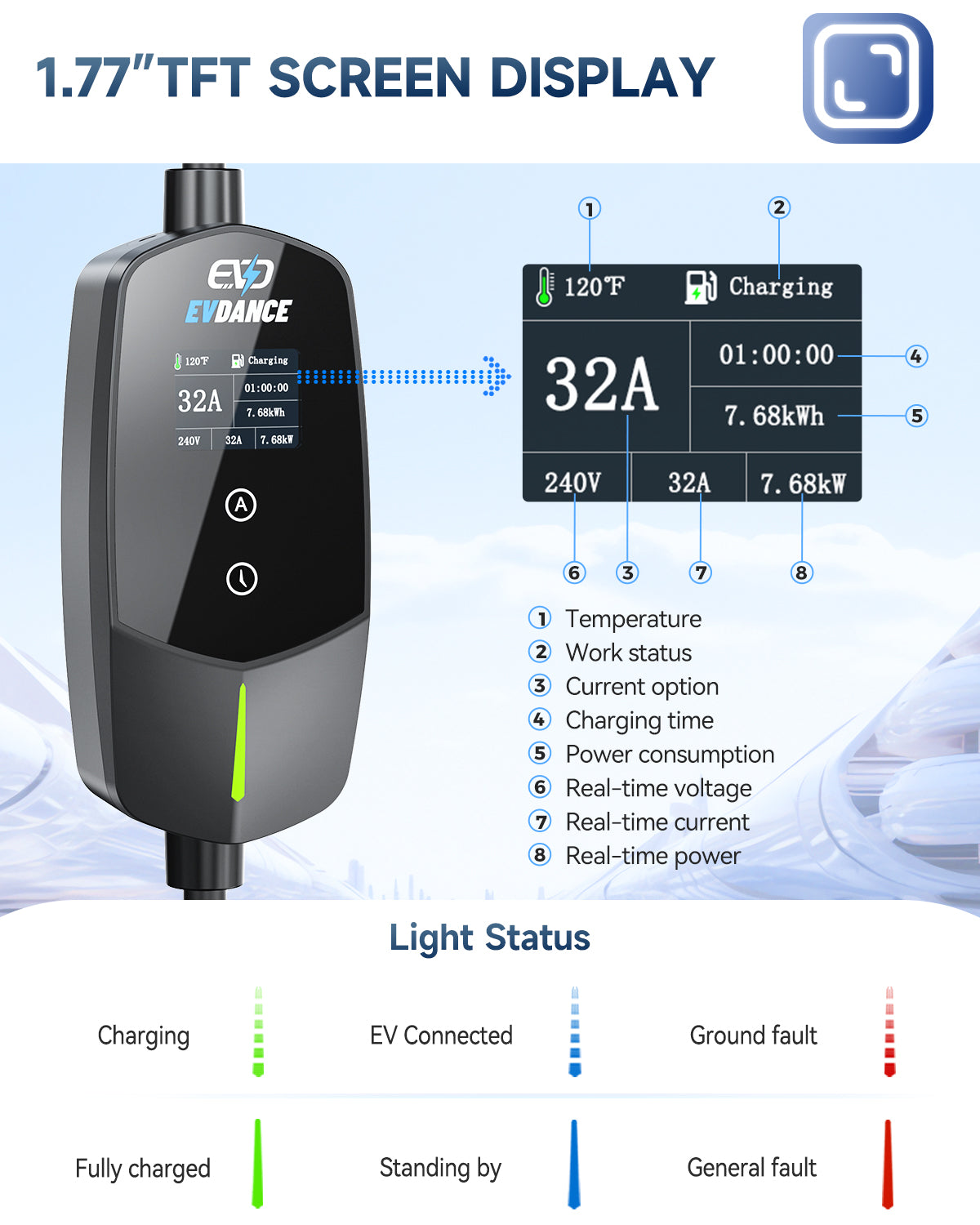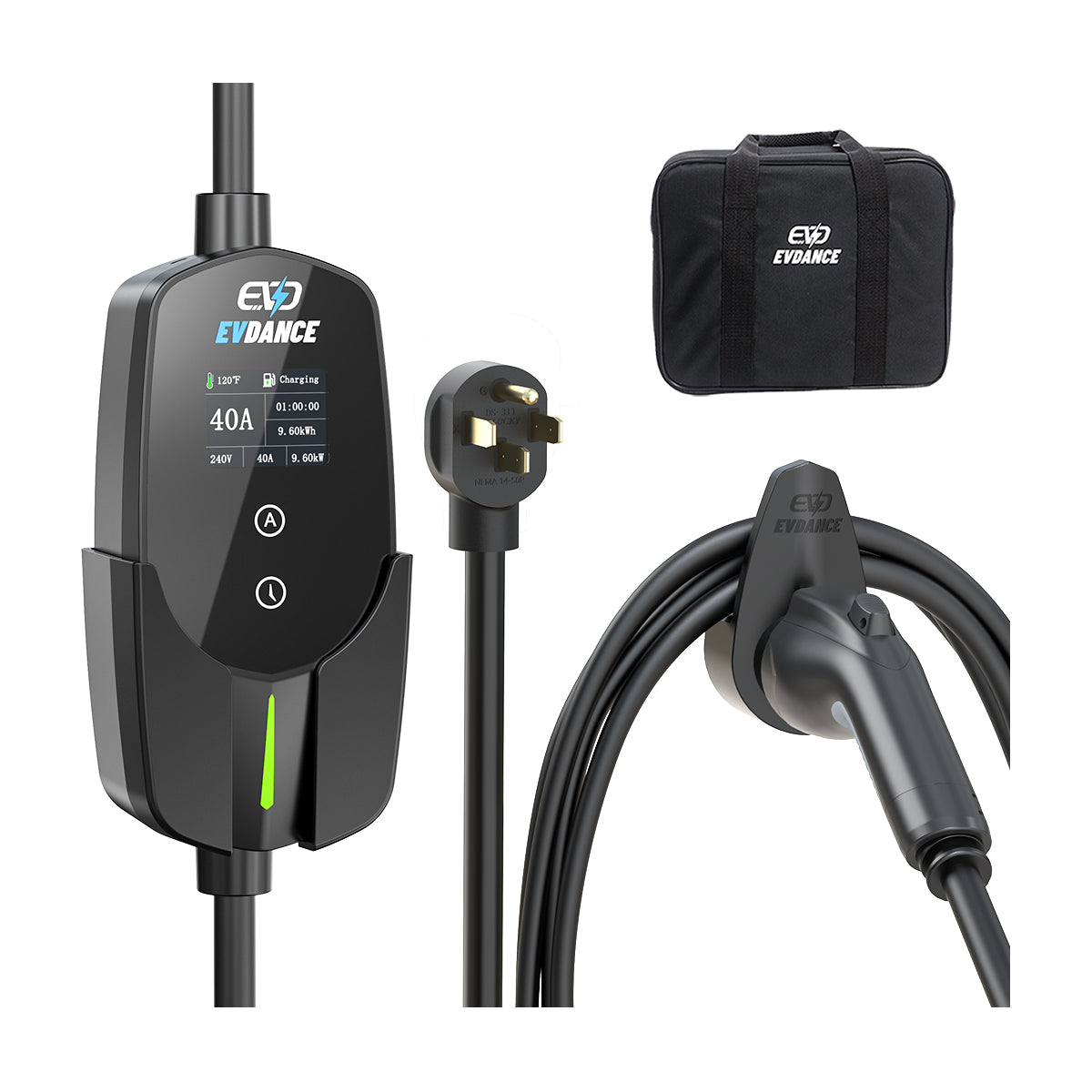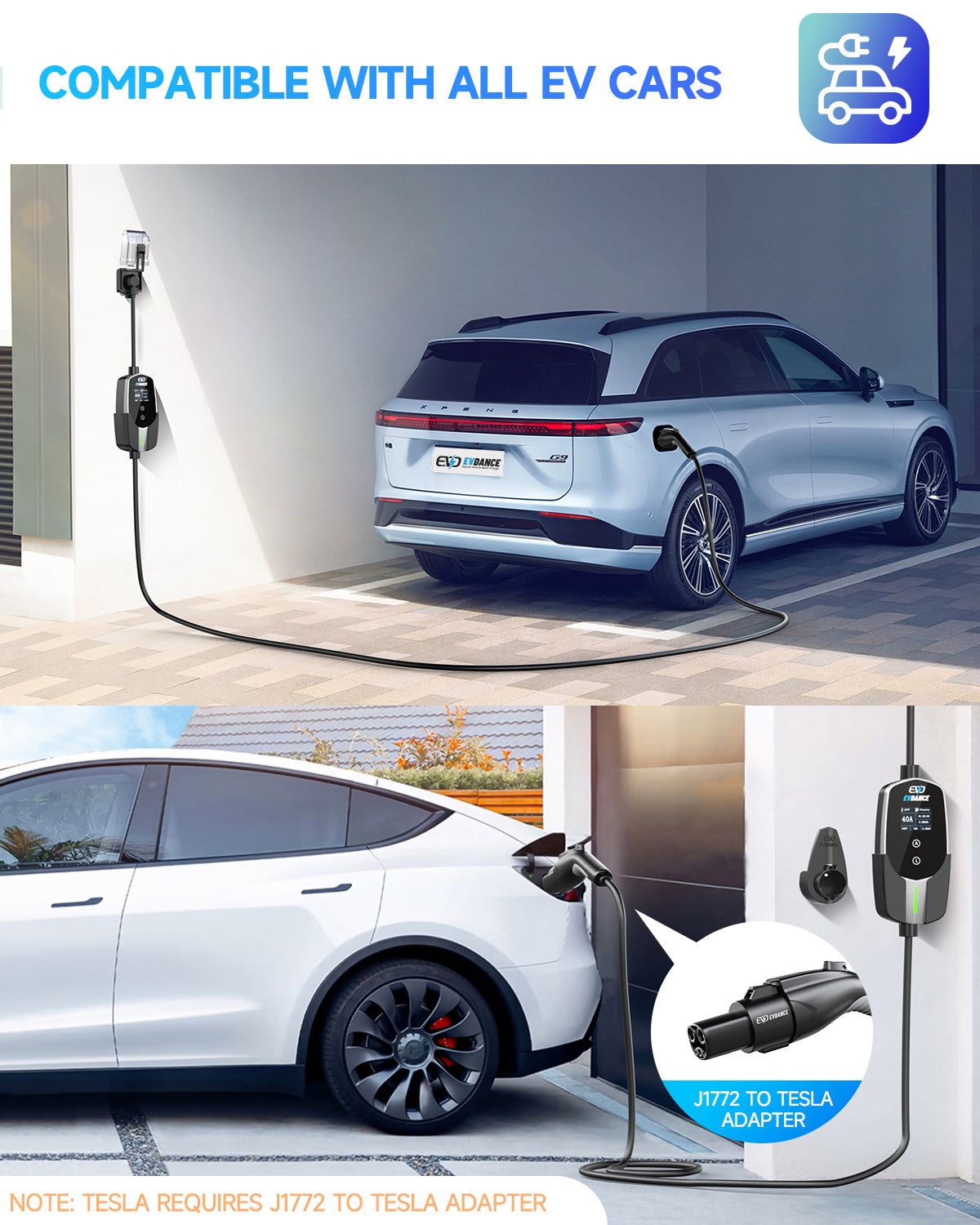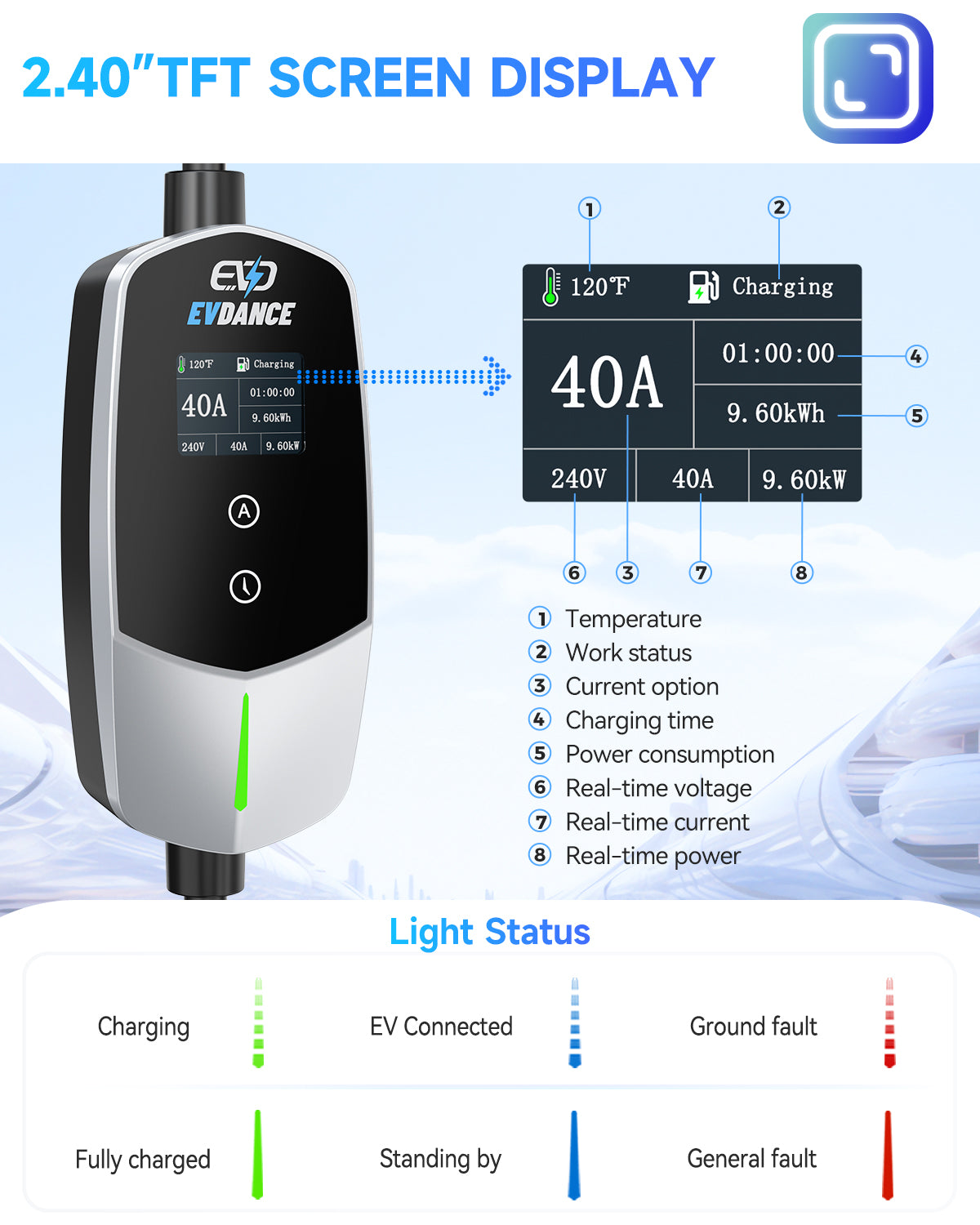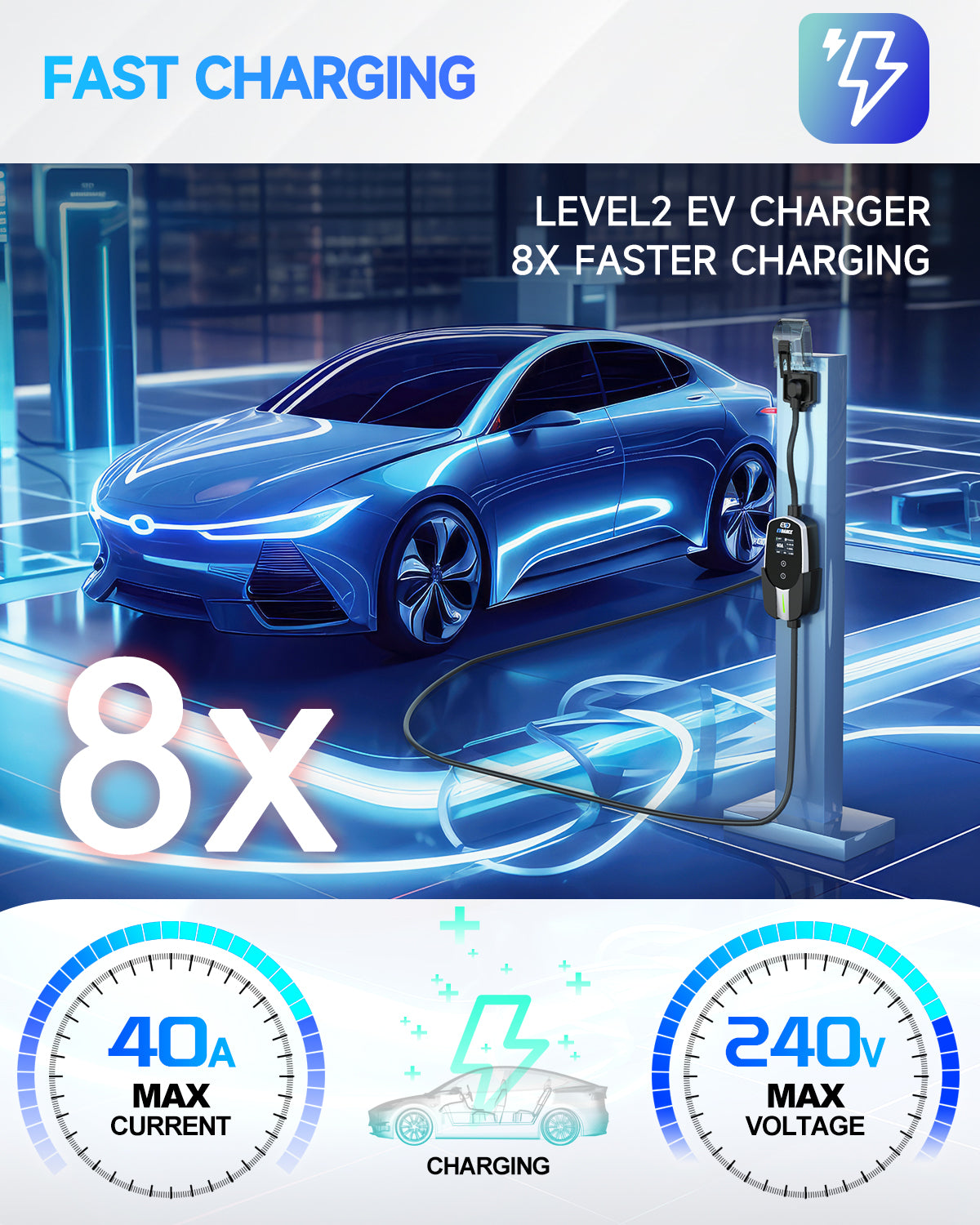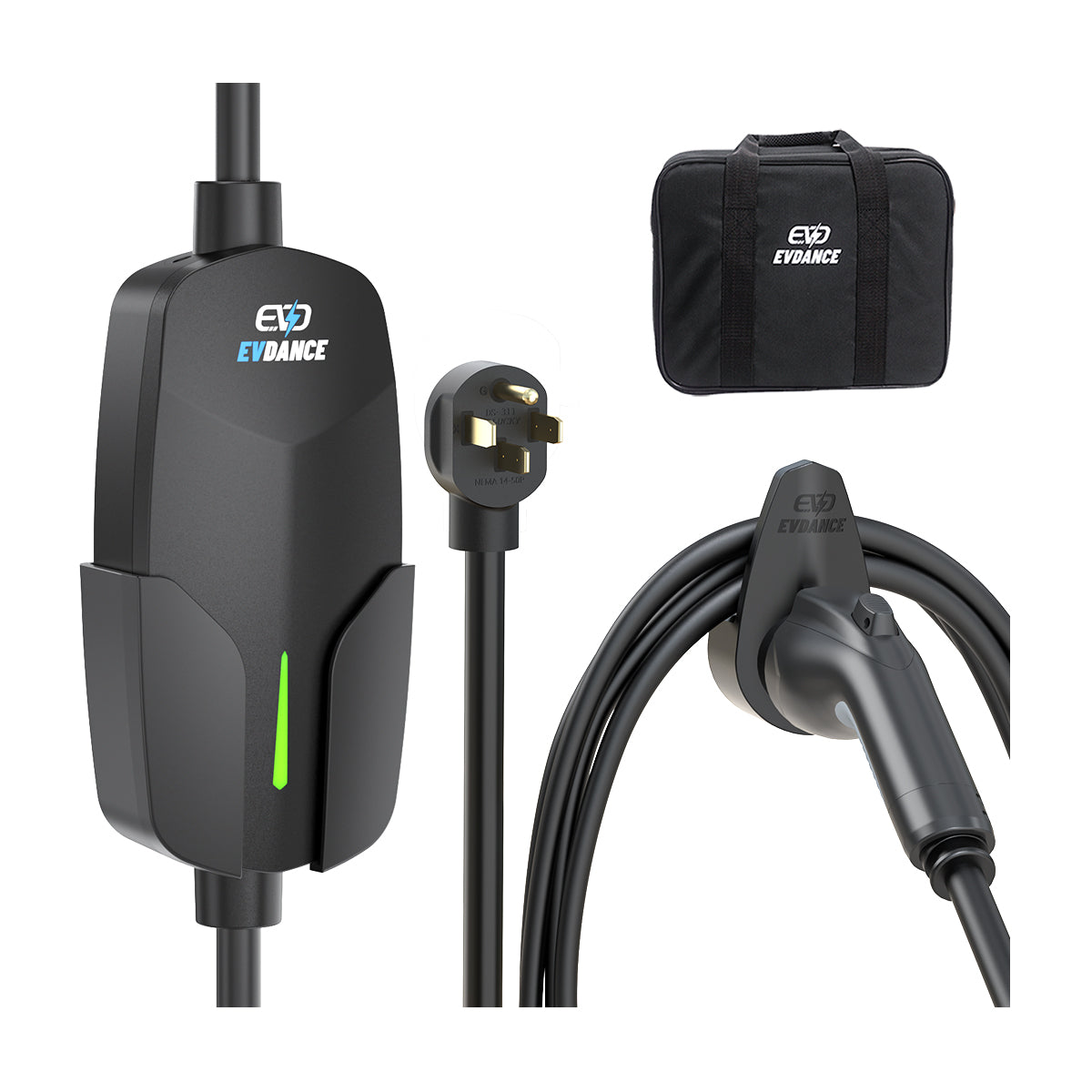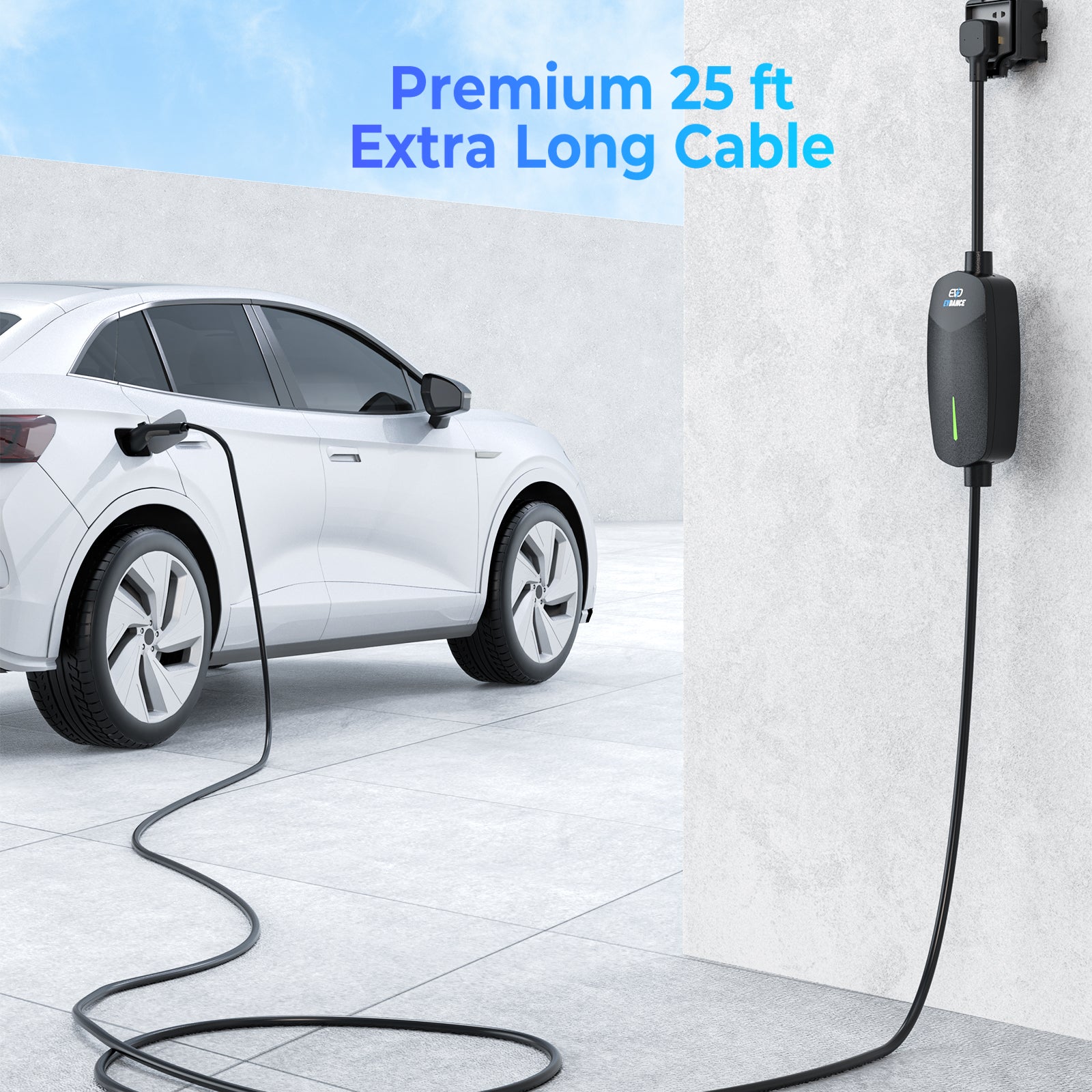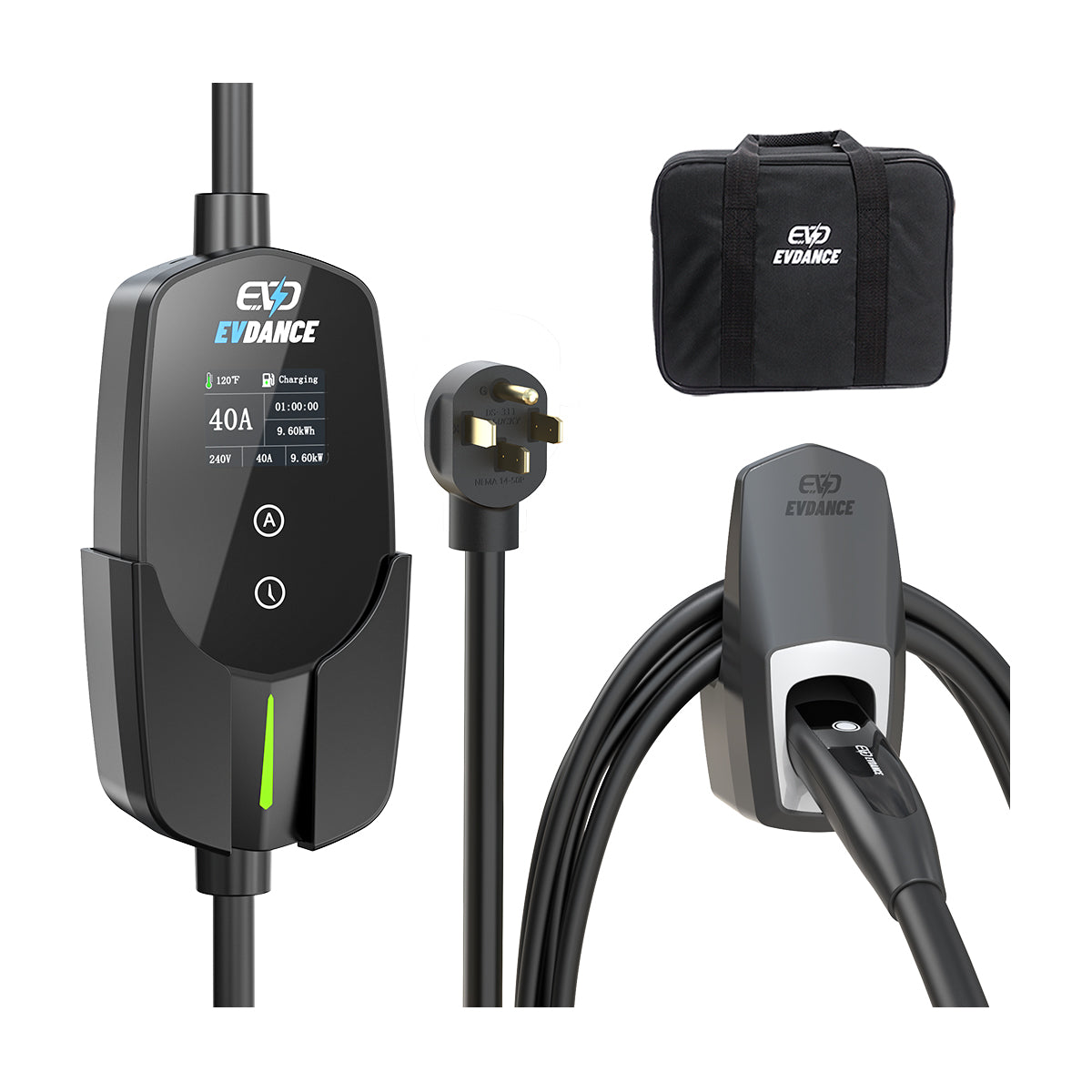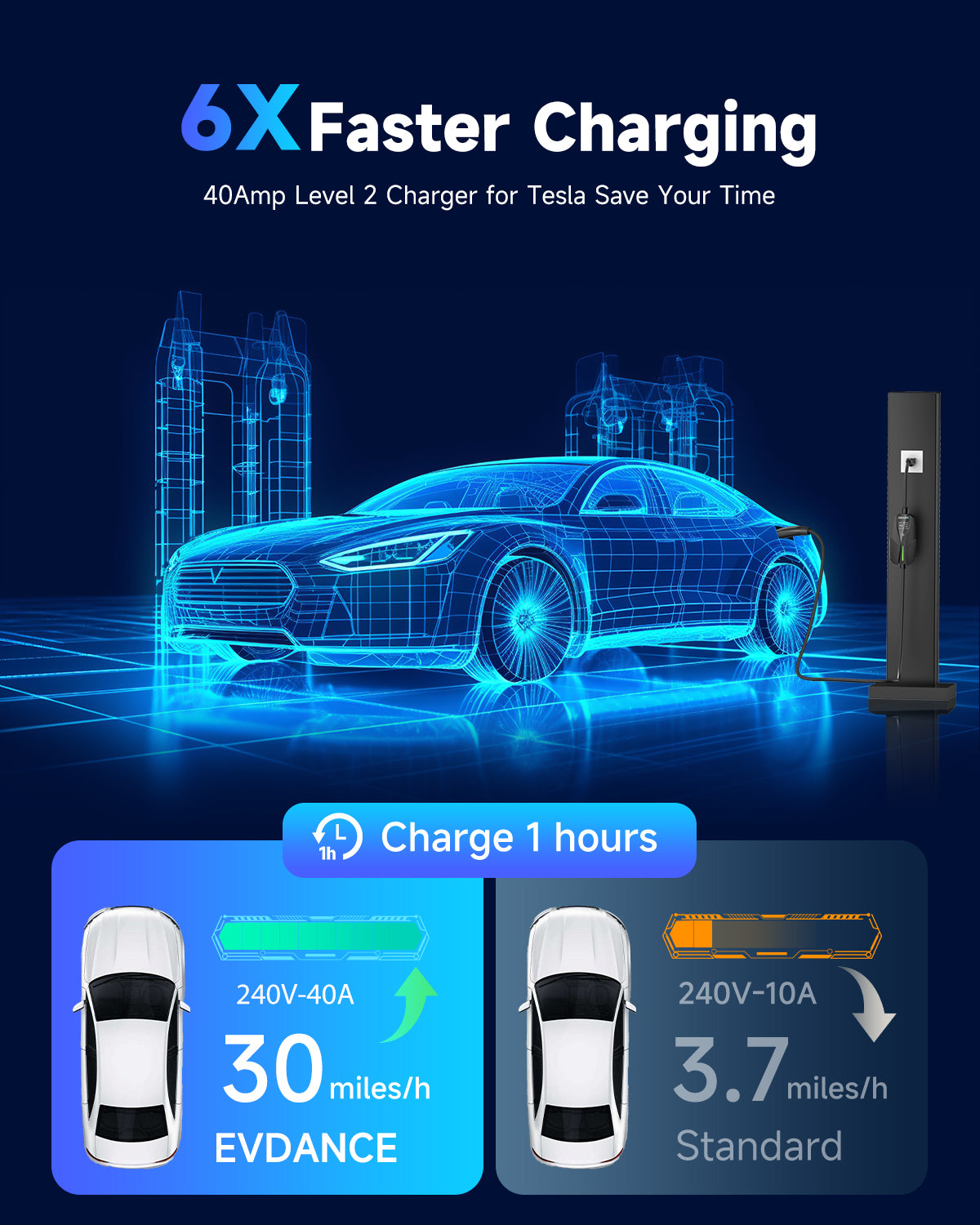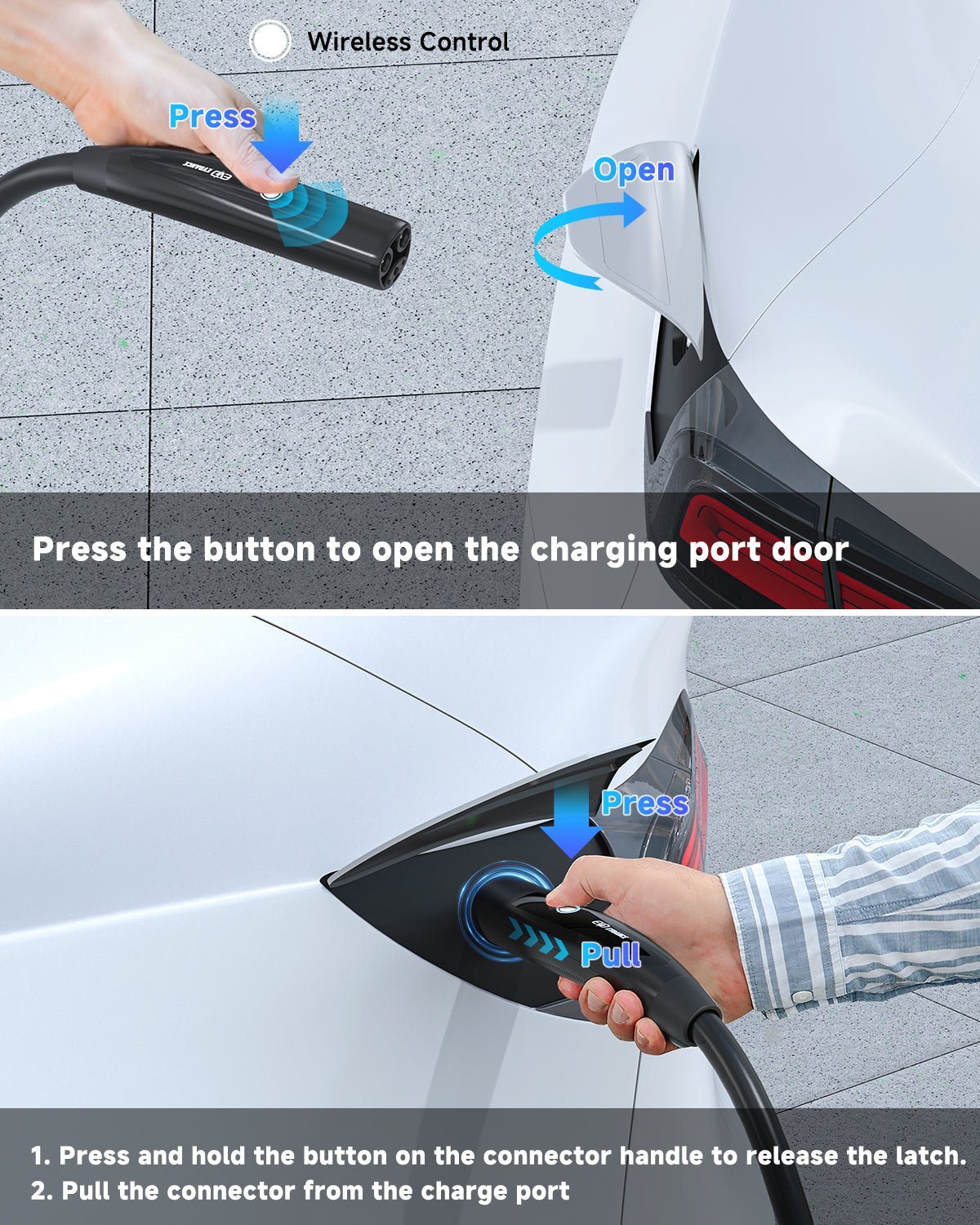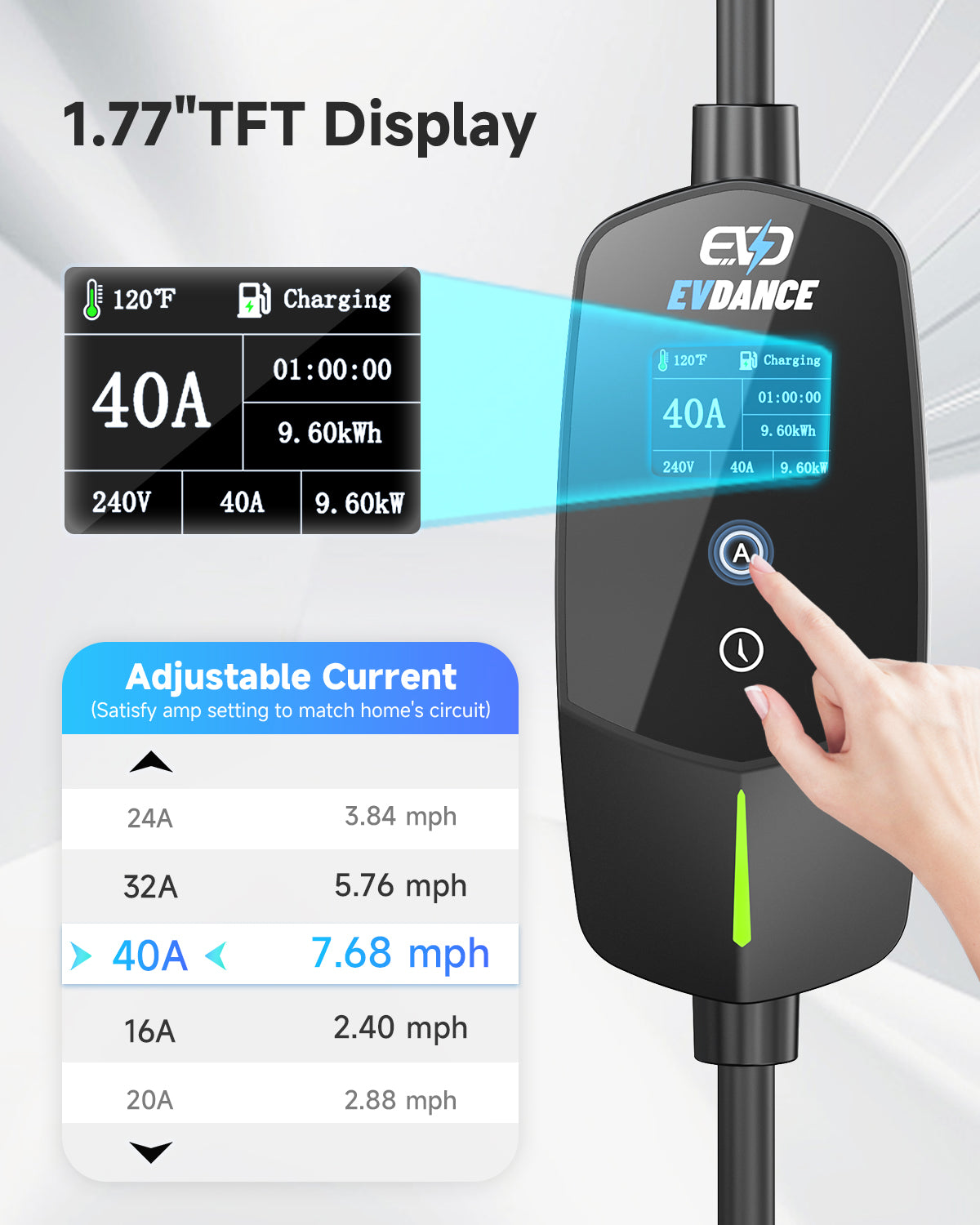Level 2 EV Charger: The Smart Choice for Fast, Efficient, and Reliable Home Charging
As electric vehicles (EVs) become a more common sight on driveways, in garages, and across highways, having a dependable, high-speed home charging solution is no longer just a convenience—it’s a necessity. The Level 2 EV charger has emerged as the go-to choice for most EV owners, offering a major improvement in speed, user experience, and long-term usability compared to the slower, entry-level Level 1 chargers.
Installed using a standard 240V power source, Level 2 chargers deliver significantly faster charging performance—typically adding between 25 to 30 miles of range per hour of charge, depending on your specific vehicle’s onboard charger capacity. Whether you're a daily commuter, an occasional road-tripper, or someone balancing multiple EVs at home, a Level 2 charger ensures that your electric vehicle is fully powered and ready when you need it, with far less waiting and far more flexibility.
When compared to using public charging infrastructure, having your own Level 2 EV charger installed at home gives drivers full control over the charging process. This means you can charge overnight, during off-peak electricity hours, or right before a trip—whenever it’s most convenient or cost-effective for your schedule. Many of today’s leading Level 2 chargers also come equipped with Wi-Fi or Bluetooth connectivity, allowing for smart features like app-based scheduling, real-time charging status updates, energy usage tracking, and seamless integration with utility time-of-use plans to help reduce monthly electricity bills.
For households with more than one EV, Level 2 chargers with smart load balancing or dual-port charging capabilities are especially useful, offering scalable solutions that grow with your needs. Whether you're future-proofing your home for years of EV use or simply looking to improve daily charging speed and reliability, a Level 2 charger is the ideal long-term investment.
Why Install a Level 2 EV Charger at Home?
While every electric vehicle comes with a Level 1 charging cable, upgrading to Level 2 offers a range of benefits:
- Charge your EV up to 6–10× faster than a standard 120V outlet.
- Shorter charging durations reduce energy waste and can align with lower-rate electricity periods.
- Schedule charging, track usage, and integrate with smart home systems via apps or voice assistants.
- Home EV charging stations are an increasingly sought-after amenity for homebuyers and renters alike
Key Features and Charging Capabilities
Choosing the right Level 2 charger depends on your vehicle’s needs, electrical system, and lifestyle. Important specifications to consider include:
- 240V (standard for Level 2 home EV chargers)
- Models range from 16A to 50A; more amps = faster charging (if your EV supports it)
- Typically provides 3.3kW to 12kW output, equivalent to ~20–40 miles of range per hour
- NEMA 14-50, 6-50, or hardwired options depending on your setup
- Most use the universal J1772 plug, compatible with nearly all EVs (Tesla drivers require an adapter)
Some chargers are portable Level 2 EV chargers, perfect for those who charge in multiple locations or don’t want permanent installation.
Installation and Safety Best Practices
A properly installed Level 2 EV charger offers years of safe and dependable service. To ensure a worry-free experience:
- Always have your charger installed on a dedicated 240V circuit with the correct amperage and breaker.
- Look for chargers certified by UL, ETL, or Energy Star to ensure safety and performance.
- Select a model with a weatherproof enclosure (NEMA 3R or better) if installing outdoors.
- Use built-in safety features and connected apps to monitor charging sessions and detect faults in real-time.
- Choose models with built-in holsters and cable organizers to prevent wear and trip hazards
FAQs
Find the answers about portable EV Charger questions.
Can I charge my EV at home with a J1772 charger?
Yes, you can install a Level 2 J1772 charging station at home for faster EV charging. An electrician can set up the charging station, providing a more efficient charging option than a standard household outlet.
Which AC input plug portable electric charger should I choose?
Choose based on the type of outlet you use most often, usually NEMA 5-15p is the most widely applicable, but NEMA 14-30p is also widely used in areas such as California.
Are there different types of J1772 connectors or plugs?
While the J1772 standard specifies the overall design and communication protocols, variations in the plug design might exist. However, the fundamental compatibility remains the same across EVs and charging stations adhering to the J1772 standard.
Can I use an adapter for charging my EV with a J1772 connector from a different charging station?
Adapters may be available to connect your EV to different types of charging stations, but compatibility and charging speeds might vary. It's important to ensure the adapter is suitable for your EV model and the charging station in use.
Are J1772 chargers compatible with fast charging or DC fast charging standards?
As electric vehicles (EVs) continue to gain popularity, the development of charging infrastructure becomes crucial. This article will introduce five main types of EV chargers:Level 1 chargers,Level 2 chargers, portable chargers, home chargers, and DC fast charging stations. Let's delve into the features and functions of each type of charger.
What is a Level 2 EV charger?
A Level 2 EV charger is a fast charging solution that uses a 240-volt outlet to significantly reduce charging time compared to standard Level 1 chargers. It is ideal for home EV charging and public stations, offering 3 to 10 times faster charging speeds.
How fast does a Level 2 charger charge my electric vehicle?
A Level 2 charger typically delivers 25–30 miles of range per hour of charging, depending on the vehicle and charger’s amperage. This makes it perfect for overnight home EV charging or quick top-ups during the day.
Do I need a professional to install a Level 2 charger?
It is highly recommended to have a licensed electrician install your Level 2 home EV charger to ensure proper wiring, grounding, and compliance with local electrical codes. Improper installation can be a safety risk.
What is the difference between a Level 1 and Level 2 EV charger?
Level 1 chargers use a standard 120V outlet and offer slow charging (around 3–5 miles per hour), while Level 2 chargers use 240V power for much faster EV charging (up to 30 miles per hour). Level 2 is best for daily use and home EV charging.
Are Level 2 chargers compatible with all EVs?
Yes, most Level 2 chargers use the universal J1772 connector, which is compatible with all electric vehicles in North America, including Tesla (with an adapter), Nissan Leaf, Chevy Bolt, Ford Mustang Mach-E, and more.
How much does it cost to charge an EV with a Level 2 charger?
Charging costs vary depending on local electricity rates, but charging at home with a Level 2 EV charger is typically much cheaper than using public chargers. On average, charging a full battery at home costs between $5 and $15.
Can I use a portable Level 2 EV charger?
Yes, portable Level 2 chargers are available and ideal for drivers who need flexibility while on the go. They plug into a 240V outlet (such as a NEMA 14-50) and offer the same fast charging performance as a stationary charger.
What features should I look for in a Level 2 EV charger?
Key features to consider include charging speed (amperage), plug type (NEMA 14-50 or hardwired), smart connectivity (Wi-Fi or Bluetooth), weather resistance, cable length, and safety certifications such as UL or Energy Star.
How do I maintain my Level 2 charger for long-term use?
To ensure durability, install your Level 2 EV charger in a sheltered or weather-resistant area, regularly inspect cables for wear, keep the connector clean, and follow the manufacturer’s maintenance guidelines. Many chargers are designed for 10+ years of service
Not Found Your Qustions?
Go to our QA Question Bank for more answers!




